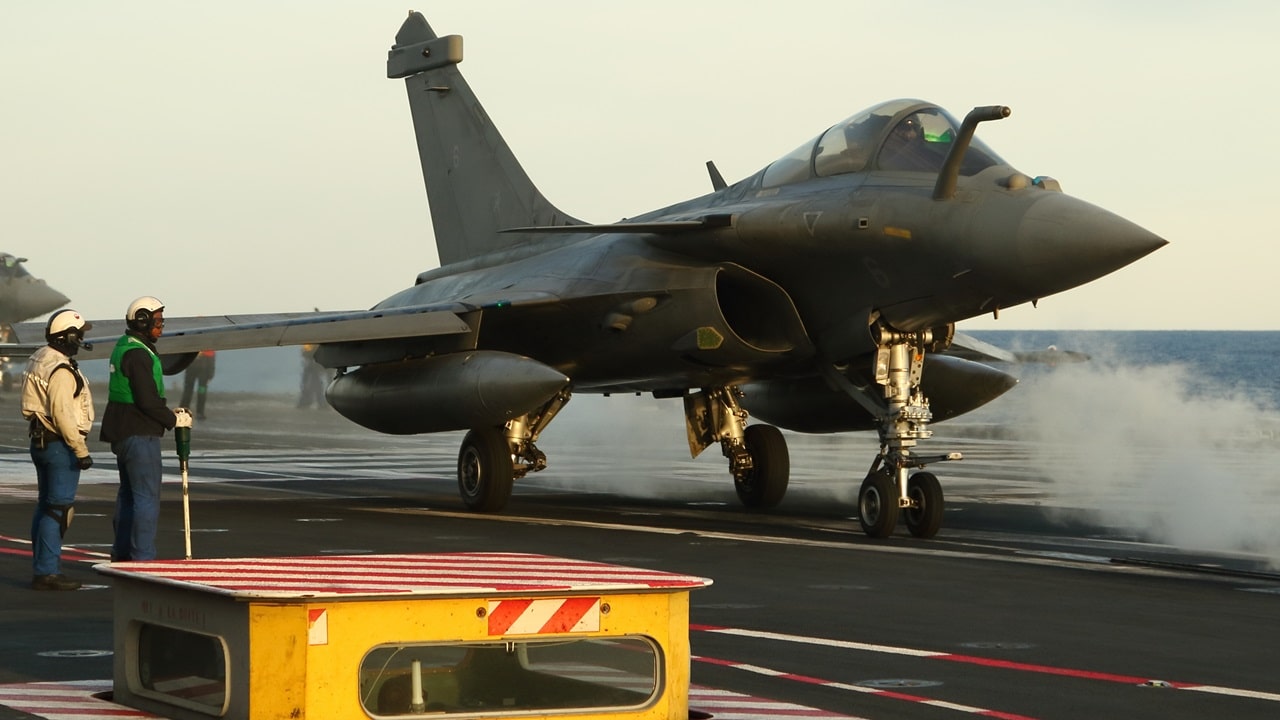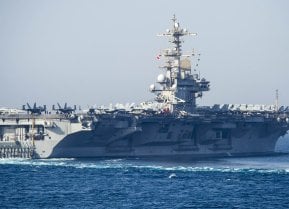France’s Charles De Gaulle Aircraft Carrier Is Simply a Naval Masterpiece
Although the Charles de Gaulle will remain in service for another seventeen years, France is already forging ahead with its next-generation carrier. The Porte-Avions Nouvelle Generation (PANG) is under development and is expected to begin construction by 2025.
France’s Charles De Gaulle Aircraft Carrier: A Primer - Images of the Charles de Gaulle (R91) aircraft carrier leaving drydock and heading to Toulon, France circulated last month on social media - and for good reason.
The sole aircraft carrier of the French Navy represents the only nuclear-powered carrier completed outside of the United States.
Additionally, the hefty carrier remains the only non-American vessel to feature a catapult launch system.
As the flagship of the French Navy, the Charles de Gaulle is a vitally significant component of the country’s power projection.
This ship is expected to serve in the French Navy until 2040, however, Paris is already considering its next-generation aircraft carrier.
A brief history of the Charles de Gaulle
Back in 2001, the Charles de Gaulle replaced its conventionally-powered predecessor, the Foch.
This Clemenceau-class carrier remained in service with the French Navy for nearly four decades. In the mid-1970’s, the French Navy began seeking a more technologically advanced carrier which culminated in the Charles de Gaulle’s inception. The ship’s hull was laid down in 1989, and the aircraft carrier was launched a few years later.
When the hefty carrier set sail, it became the largest warship launched in Western Europe in more than two decades.
What makes France’s sole nuclear-powered carrier so formidable?
The Charles de Gaulle can carry up to 40 airframes, including the Rafale M fighter jet and the Super Etendard and E-2C Hawkeye airborne early warning aircraft.
Additional specs surrounding the carrier have been detailed by Naval Technology: “The main deck consists of a main runway, angled at 8.5° to the ship’s axis, and an aircraft launch area forward of the island. These are each equipped with a USN-type C13 catapult, capable of launching one aircraft a minute. The runway is 195m long, and the whole deck measures 260m x 64m. The carrier is fitted with the Sagem Defense Sécurité (formerly EADS Defence and Electronics) DALAS laser landing aid.The carrier is fitted with the SATRAP computerised, integrated stabilisation system designed to maintain stabilisation to within 0.5° of horizontal, allowing aircraft to be operated in sea states up to 5/6. As well as the carrier’s two pairs of active stabilising fins and twin rudders, the system has two computer-controlled compensation units consisting of two rail tracks for trains carrying 22t of deadweight.”

In 2007, the Charles de Gaulle underwent a major overhaul, which included the refueling of the nuclear power plant.
Engineers also installed new propellers, which enable the ship to reach up to 27 knots in speed.
Weapons stores were also enhanced so the carrier could operate new Rafale F3 jets armed with SCALP EG cruise missiles ASMP-A nuclear missiles. In terms of armaments, the Charles de Gaulle can pack a punch.
The ship is equipped with two surface anti-air missile systems for defense against adversarial aircraft and anti-ship missiles.
Additionally, the carrier possesses six-cell Sadral launching systems for the Mistral anti-aircraft and anti-missile systems.

More specs and capabilities
The Charles du Gaulle’s avionics suite is also quite formidable: “The suite of radar sensors installed on the carrier are: Thales DRBJ 11B three-dimensional long-range air search radar operating in the E- to F- bands; Thales DRBV 26D Jupiter medium / long-range air search radar operating at D-band; Thales DRBV 15C Sea Tiger mk2 air and surface search radar operating at E and F bands; two Thales (formerly Racal) Model 1229 navigation radars operating at I band; and the Thales Arabel fire control radar operating at I to J band.”
What we know about France’s next-generation carrier
Although the Charles de Gaulle will remain in service for another seventeen years, France is already forging ahead with its next-generation carrier. The Porte-Avions Nouvelle Generation (PANG) is under development and is expected to begin construction by 2025.
According to reports, France has already committed more than $305 million to the PANG program. The next-generation aircraft carrier is expected to be powered by two K22 reactors. Additionally, analysts predict that the aircraft carrier will feature an air wing that could include up to 32 next-generation fighter jets.
Although French President Emmanuel Macron has already okayed the construction of the PANG carrier, little information regarding its makeup has been released since December 2020.
The French Navy has instead focused on ensuring its current aircraft carrier was in the condition to serve its sea-based operations.
Maya Carlin is an analyst with the Center for Security Policy and a former Anna Sobol Levy Fellow at IDC Herzliya in Israel. She has by-lines in many publications, including The National Interest, Jerusalem Post, and Times of Israel. You can follow her on Twitter: @MayaCarlin.
All Images Via Shutterstock.


